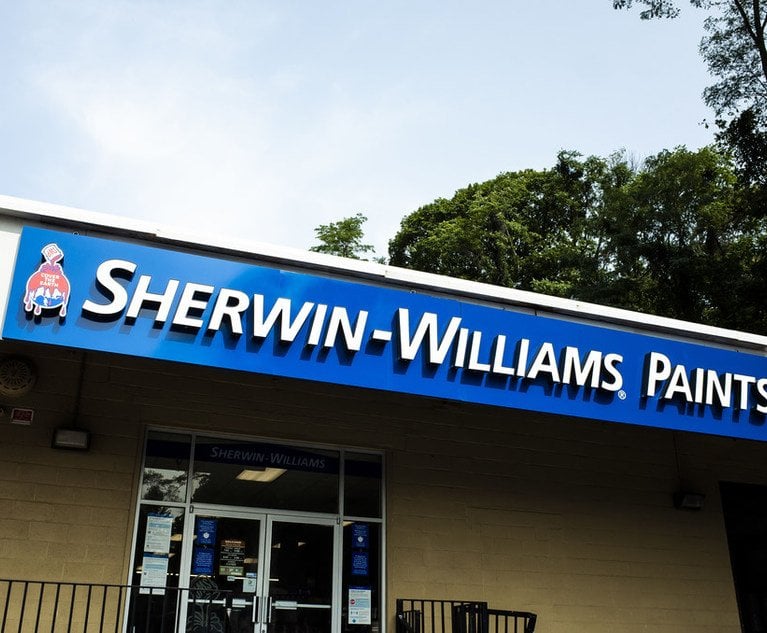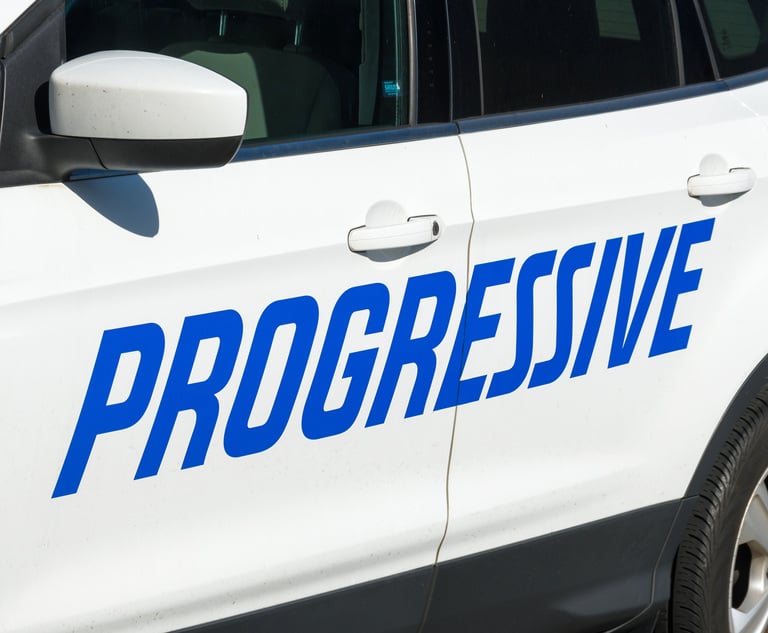Tustin Field Gas and Food, Inc. v. Mid-Century Insurance Company
C.A. 2nd; B268850 The Second Appellate District affirmed a judgment. The court held that the impairment of an underground storage tank’s structural…
July 05, 2017 at 06:13 PM
5 minute read
C.A. 2nd;
B268850
The Second Appellate District affirmed a judgment. The court held that the impairment of an underground storage tank's structural integrity, resulting from the apparently settling of the tank over time, did not constitute a “collapse” for purposes of the owner's insurance policy.
In 1997, Tustin Field Gas & Food, Inc. arranged to the installation of two 15,000-gallon underground gasoline storage tanks. The installer did not follow the tank manufacturer's instructions to bury them in pea gravel or crushed rock. Instead, the installer just dug a hole, placed the tanks into that hole, and then covered them with “native soil” containing rocks, boulders, chunks of asphalt, rusted pipes, and other debris. The first tank was set atop a boulder with a nine-inch diameter as well as atop pockets of air. The tanks had an inner wall made of steel, wrapped in a synthetic honeycomb and sheathed with an outer wall made of fiberglass. In 2013, Tustin discovered that the fiberglass sheath on the first tank had cracked where it rested on the boulder. The tank's inner steel wall was still intact, and there was no “imminent danger” of rupture, but it was unusable until the sheath was repaired. Tustin paid to have the fiberglass sheath patched, and then filed a claim with its insurer, Mid-Century Insurance Company, for the cost of the repair. Mid-Century denied the claim, finding the damage to the tank was not covered under Tustin's policy, which limited coverage to the “collapse” of a building or structure, including outdoor fixtures and permanently installed machinery and equipment. Tustin sued Mid-Century for breach of contract and related claims.
This content has been archived. It is available through our partners, LexisNexis® and Bloomberg Law.
To view this content, please continue to their sites.
Not a Lexis Subscriber?
Subscribe Now
Not a Bloomberg Law Subscriber?
Subscribe Now
NOT FOR REPRINT
© 2025 ALM Global, LLC, All Rights Reserved. Request academic re-use from www.copyright.com. All other uses, submit a request to [email protected]. For more information visit Asset & Logo Licensing.
You Might Like
View All
Texas Insurer Slaps Hinshaw & Culbertson With Legal Mal Claim Over $11 Million Personal Injury Jury Award
3 minute read
Insurers Dodge Sherwin-Williams' Claim for $102M Lead Paint Abatement Payment, State High Court Rules


'A Wake Up Call to the Life Insurance Industry:' California Sues Insurers
3 minute readTrending Stories
- 1Restoring Trust in the Courts Starts in New York
- 2'Pull Back the Curtain': Ex-NFL Players Seek Discovery in Lawsuit Over League's Disability Plan
- 3Tensions Run High at Final Hearing Before Manhattan Congestion Pricing Takes Effect
- 4Improper Removal to Fed. Court Leads to $100K Bill for Blue Cross Blue Shield
- 5Michael Halpern, Beloved Key West Attorney, Dies at 72
Who Got The Work
Michael G. Bongiorno, Andrew Scott Dulberg and Elizabeth E. Driscoll from Wilmer Cutler Pickering Hale and Dorr have stepped in to represent Symbotic Inc., an A.I.-enabled technology platform that focuses on increasing supply chain efficiency, and other defendants in a pending shareholder derivative lawsuit. The case, filed Oct. 2 in Massachusetts District Court by the Brown Law Firm on behalf of Stephen Austen, accuses certain officers and directors of misleading investors in regard to Symbotic's potential for margin growth by failing to disclose that the company was not equipped to timely deploy its systems or manage expenses through project delays. The case, assigned to U.S. District Judge Nathaniel M. Gorton, is 1:24-cv-12522, Austen v. Cohen et al.
Who Got The Work
Edmund Polubinski and Marie Killmond of Davis Polk & Wardwell have entered appearances for data platform software development company MongoDB and other defendants in a pending shareholder derivative lawsuit. The action, filed Oct. 7 in New York Southern District Court by the Brown Law Firm, accuses the company's directors and/or officers of falsely expressing confidence in the company’s restructuring of its sales incentive plan and downplaying the severity of decreases in its upfront commitments. The case is 1:24-cv-07594, Roy v. Ittycheria et al.
Who Got The Work
Amy O. Bruchs and Kurt F. Ellison of Michael Best & Friedrich have entered appearances for Epic Systems Corp. in a pending employment discrimination lawsuit. The suit was filed Sept. 7 in Wisconsin Western District Court by Levine Eisberner LLC and Siri & Glimstad on behalf of a project manager who claims that he was wrongfully terminated after applying for a religious exemption to the defendant's COVID-19 vaccine mandate. The case, assigned to U.S. Magistrate Judge Anita Marie Boor, is 3:24-cv-00630, Secker, Nathan v. Epic Systems Corporation.
Who Got The Work
David X. Sullivan, Thomas J. Finn and Gregory A. Hall from McCarter & English have entered appearances for Sunrun Installation Services in a pending civil rights lawsuit. The complaint was filed Sept. 4 in Connecticut District Court by attorney Robert M. Berke on behalf of former employee George Edward Steins, who was arrested and charged with employing an unregistered home improvement salesperson. The complaint alleges that had Sunrun informed the Connecticut Department of Consumer Protection that the plaintiff's employment had ended in 2017 and that he no longer held Sunrun's home improvement contractor license, he would not have been hit with charges, which were dismissed in May 2024. The case, assigned to U.S. District Judge Jeffrey A. Meyer, is 3:24-cv-01423, Steins v. Sunrun, Inc. et al.
Who Got The Work
Greenberg Traurig shareholder Joshua L. Raskin has entered an appearance for boohoo.com UK Ltd. in a pending patent infringement lawsuit. The suit, filed Sept. 3 in Texas Eastern District Court by Rozier Hardt McDonough on behalf of Alto Dynamics, asserts five patents related to an online shopping platform. The case, assigned to U.S. District Judge Rodney Gilstrap, is 2:24-cv-00719, Alto Dynamics, LLC v. boohoo.com UK Limited.
Featured Firms
Law Offices of Gary Martin Hays & Associates, P.C.
(470) 294-1674
Law Offices of Mark E. Salomone
(857) 444-6468
Smith & Hassler
(713) 739-1250






